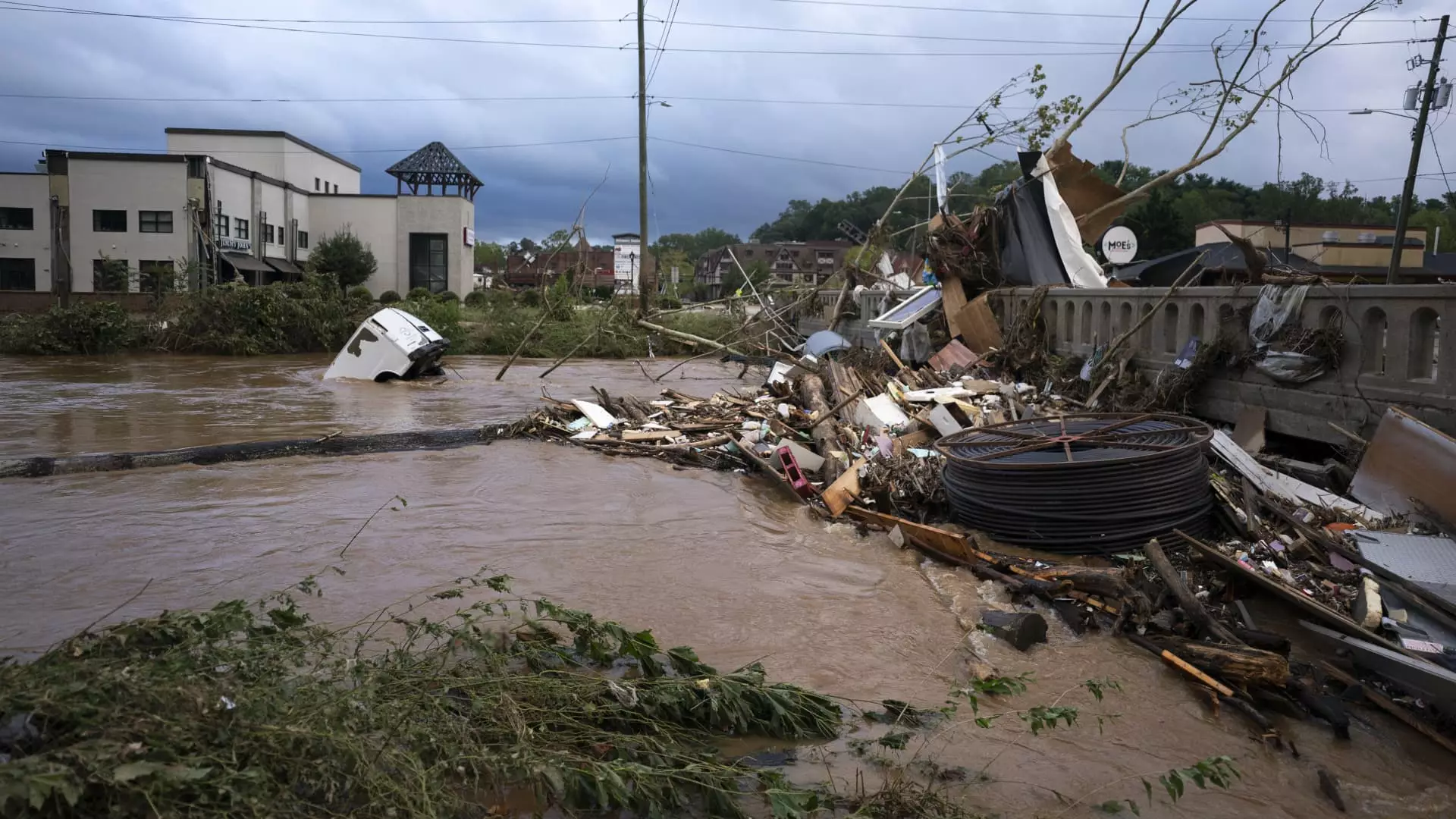In the wake of Hurricane Helene, various states have heightened their alerts regarding potential scams that could exploit the vulnerable situations of residents. One of the most egregious forms of exploitation observed is price gouging, which refers to the drastic and undue increase of prices for essential goods and services in times of crisis. This unethical practice often victimizes individuals desperately in need of necessities such as food, water, and shelter.
North Carolina Attorney General Josh Stein recently reported a substantial increase in complaints regarding alleged price gouging. His office noted over a hundred such complaints related to fuel costs, grocery items, and hotel accommodations within a short time frame. Despite laws designed to curtail such practices, which become active when a state of emergency is declared, some merchants seem undeterred as they capitalize on citizens’ desperation. Stein remarked, “Most stores are bending over backwards to serve their communities… but unfortunately, there are always a few who take advantage of the moment.”
Other states that faced the ramifications of the hurricane, such as Florida, Georgia, South Carolina, and Tennessee, have echoed similar alerts, advocating for swift action against those exploiting the urgent needs of their communities during this crisis.
Distinguishing Between Normal Pricing and Gouging
A crucial aspect of curtailing price gouging lies in educating consumers about what constitutes fair pricing versus exploitative practices. For instance, Attorney General Alan Wilson of South Carolina indicated that fluctuating prices are typical in unstable markets; however, significant spikes in prices—for example, a rise from $5 to $10 for bottled water—are clear indicators of price gouging. Consumer advocate Teresa Murray emphasizes that the distinction becomes apparent: “You know it when you see it.”
The laws regarding price gouging differ across states, which presents a challenge for both consumers and law enforcement. While 37 states do maintain anti-price gouging statutes, there are still 13 that do not regulate this aspect of commerce, leaving residents vulnerable during desperate times. Proposals for a national ban on price gouging are being discussed, particularly by political figures like Vice President Kamala Harris. Critics, including former President Donald Trump, caution that such regulations might stifle market supply and inadvertently hurt the very consumers they aim to protect.
Given the susceptibility of communities in the aftermath of natural disasters, it is imperative that consumers actively guard against schemes beyond price gouging. Many who seek to take advantage of vulnerable populations may masquerade as representatives from reputable organizations like FEMA, insurance agencies, and law enforcement. In Georgia, Attorney General Chris Carr has urged individuals not to provide personal or financial information during unsolicited interactions.
To protect themselves, consumers are advised to approach businesses with concerns regarding inflated pricing in a courteous manner first. Photography of the item and its price can serve as evidence should they choose to report the matter to the state attorney general. Should a consumer encounter dubious door-to-door sales pitches for home repairs, they are advised to consult their insurance providers before proceeding. Verifying contractor references and checking for any complaints with the Better Business Bureau can also be prudent steps.
The impact of Hurricane Helene extends to the vehicle market as well, with the risk of unscrupulous sales practices proliferating. Consumers who are considering purchasing a car should remain vigilant against acquiring flood-damaged vehicles. Utilizing resources like the National Insurance Crime Bureau’s VINCheck and Carfax’s flood check can help ascertain the vehicle’s history and its condition prior to purchase.
Moreover, as many individuals wish to donate to recovery efforts, the potential for charity scams increases. Attorneys general stress the importance of verifying charities before sending donations. Utilizing trustworthy platforms such as Give.org or CharityNavigator.org can assist potential donors in ensuring their contributions go to legitimate organizations and causes.
In the aftermath of Hurricane Helene, it is paramount for residents to remain vigilant and informed regarding the various scams targeting vulnerable populations. From price gouging to charity fraud, the potential for exploitation is rampant during such crises. By understanding these risks and taking proactive measures, individuals can protect themselves and their communities from unscrupulous actors aiming to profit in times of need. Empowering consumers with knowledge and resources is key to combating these fraudulent practices and fostering a community spirit that emphasizes resilience and mutual support.


Leave a Reply